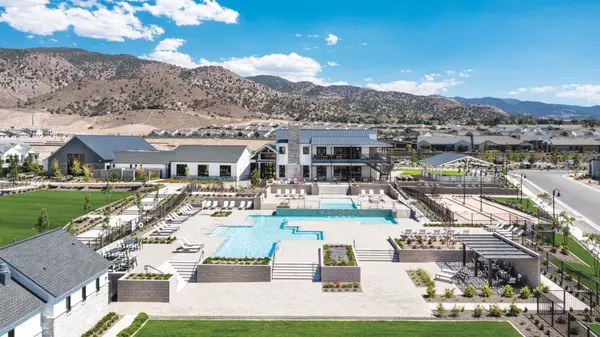Who Owns a House During Probate?
Quick Answer
Until the probate process is complete, the home sits in a kind of legal limbo.
Title stays with the deceased person’s estate, the probate court oversees every major move, and an executor or court-appointed administrator manages day-to-day decisions in the best interests of the estate.
No heir truly owns a house during probate, even if they plan to inherit it later.
Understanding Probate and Property Ownership
What Is Probate?
Probate is the legal process that steps in after someone dies to prove a will, appoint a representative of the estate, inventory assets, settle debt, pay estate taxes, and distribute whatever’s left.
In plain English, it’s the court-supervised way to make sure everything in the deceased individual’s estate ends up where state law or the will says it should.
Because real estate can’t simply swap owners with a handshake, probate is the legal procedure that keeps things orderly.
Why Probate Is Necessary for Real Estate
A house is not like a savings account; you can close it with a death certificate.
A valid deed has to show who owns the home, and the old owner’s name must be cleared before anyone else can claim title. Probate administration gives the executor formal authority to manage the property during probate, collect rent, insure the place, or sell the property if that benefits the estate.
Without court approval, a buyer’s title company won’t touch the sale, and lenders won’t write a mortgage.
The Difference Between Legal Title and Beneficial Ownership
During probate, legal title is frozen in the deceased person’s name.
Beneficial ownership, who will inherit the house, only becomes real after the court order that transfers the title. That means an heir can live in the house with permission, pay utilities, and mow the lawn, but they still can’t sign a listing agreement or borrow against the equity until the court signs off.
Who Technically Owns a House During Probate
Role of the Estate
From the moment of death, the house becomes probate property and part of the estate assets. It joins bank accounts, cars, art, or anything else the deceased person’s estate owned outright.
Because it is part of the estate property, every action must first benefit the estate and its creditors before the heirs own the house.
Responsibilities of the Executor or Administrator
The executor may manage the property, find insurance, arrange repairs, collect rent, and even sell a house if the transaction is necessary to pay outstanding debts or balance inheritances. They don’t get to move in rent-free. Their duty to the estate means any decision must help maintain the property and protect its value.
If a will is silent on the home, the executor may need to sell the house or distribute proceeds so the court can settle the estate.
What Happens If There’s a Will vs. No Will
When a valid will exists, it usually names who should inherit the house and whether the executor may keep or sell the property.
If no will exists, state law kicks in. Most states push the house toward a surviving spouse first, then biological or adopted children, then more distant relatives.
Either way, heirs still must go through probate because the legal title can’t shift until the court is satisfied that creditors have been paid and the estate assets are ready to distribute.
What the Executor Can and Can’t Do With the Property
Managing the Home During Probate
A house needs attention—lawn care, insurance, utilities—throughout the probate process. The executor can hire contractors, change locks, and generally manage the property.
If the place falls apart, that hurts the value of the estate and risks a lower price should the executor need to sell a house. Managing the property isn’t optional; it’s a duty to the estate.
How to Sell a House During Probate
Executors sometimes need to sell the property during probate. Court approval is often required, and the sale proceeds go back into the estate to pay debt or balance inheritances. Some people even hold an estate sale during the process. Depending on state law, the court oversees every offer and may even run an auction-style hearing.
Data from probate practitioners shows that selling a house during probate can take several extra months because buyers and lenders wait for formal court approval.
Renting or Living in a Property During Probate
Can heirs stay in the house? Maybe.
The executor might allow an heir to live in a house or rent it to a third party if that income helps maintain the property or benefits the estate. Yet the executor has to make sure no one claims squatter’s rights, stops paying, or blocks a future sale.
If several heirs own equal shares once probate is complete, one sibling living in the property for free can spark a lawsuit quickly.
Special Situations to Consider
Joint Ownership and Right of Survivorship
When real estate is held as joint tenancy with right of survivorship, the surviving co-owner bypasses probate entirely. The house is transferred straight to the survivor upon filing a death certificate. Because this arrangement can help avoid probate, many married couples choose it for ease.
Community Property States
In community property states like California or Texas, most assets acquired during marriage belong equally to each spouse. The surviving spouse often keeps their half automatically, while the deceased person’s half flows into probate.
How the house is divided depends on state law, any will, and whether the couple filed a community property agreement.
Mortgage and Debt Obligations During Probate
The mortgage doesn’t disappear just because the borrower died. The estate has to keep payments current or risk foreclosure. If the estate can’t cover the loan and the heirs want to keep the property, they may need to refinance into their own names.
Otherwise, the executor may need to sell the property to cover outstanding debts, interest, and upkeep expenses.
When Ownership Officially Transfers
Final Distribution of Assets
Once all creditors are paid, tax filings are done, and the court is satisfied, the probate court issues an order letting the executor distribute what’s left. Only then does the heir inherit the house or the proceeds from its sale.
At that moment, heirs own the house and probate is complete.
Recording the New Deed
The last step in transferring property is recording the new deed. The executor signs as representative of the estate, and the deed shows how title is now vested—whether in one heir’s name, several heirs as tenants in common, or a trust.
When the deed hits county records, the home is no longer part of the deceased individual’s estate.
Final Thoughts on Property Ownership During Probate
Protecting the Property
A vacant home is vulnerable to theft, vandalism, or burst pipes. Smart executors keep insurance active, visit the place regularly, and handle routine maintenance. That way, the property during probate doesn’t lose value and remains an asset that clearly benefits the estate.
Consulting a Probate Attorney
Probate can be a complex process, paperwork can pile up fast, and probate laws vary by state.
An experienced probate attorney can help simplify the probate process, guide an executor through court approval, and make sure every move best serves the estate. Using professional help may also help avoid probate delays and expensive mistakes.
FAQ’s About Ownership During Probate
Can heirs live in a house while probate is pending?
They can remain in the house only if the executor agrees and the arrangement doesn’t hurt the estate. If living in the property risks damage or blocks a necessary sale, the executor may ask the probate court to order the occupants out.
Does the executor own the home?
No. The executor manages the probate property but does not gain personal ownership. Their authority ends once the house is transferred according to probate law.
What happens if the estate needs to sell the house to pay debt?
If outstanding debts exceed liquid assets, the executor may need to sell the house. The sale requires court approval and must be sold to cover estate obligations before heirs receive anything.
How can families avoid probate for future real estate transfers?
A comprehensive estate plan that includes a living trust, transfer-on-death deed, or joint ownership can bypass probate. States like Massachusetts allow transfer-on-death deeds that move a house directly to named beneficiaries.
Does the probate process always take the same amount of time?
No. The probate process varies depending on the size of the estate, state law, and whether heirs fight over assets. A small estate with no debt might wrap up in a few months, while a complex process involving multiple properties or probate disputes can stretch well past a year.
Categories
Recent Posts











